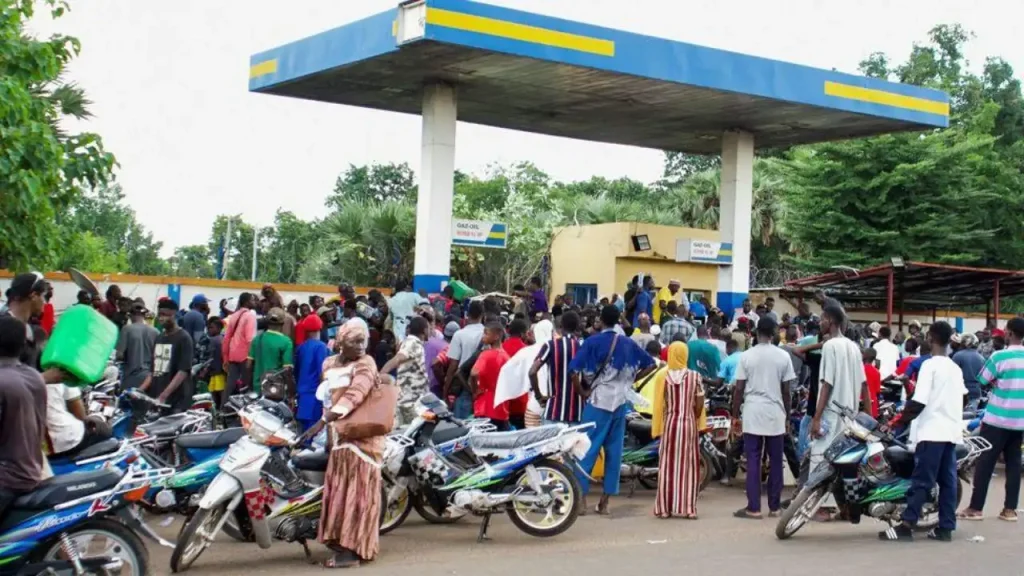General Assimi Goita, the head of Mali’s military government, publicly addressed the severe national fuel crisis for the first time on Monday.
The crisis was triggered by a militant group’s successful blockade of tankers transporting fuel into the landlocked West African nation.
Goita spoke candidly about the human cost of the situation. He acknowledged the extreme danger confronting transport crews. “During the escort of the fuel tanker convoy, people are dying; there are ambushes on the roads,” he reported. He also shared a tragic detail: “Tankers are catching fire with people inside them, who are burning to death.”
The General made these remarks during an official trip to the country’s south to inaugurate a new lithium mine, where he met with Bougouni regional authorities. Before this, Malian officials had provided very little public comment on the crippling blockade.
Militant Ban Squeezes Fragile Economy
The militant organization, which is linked to a major global extremist network, announced the ban on fuel imports in early September.
This action served as retaliation for a previous government measure. Earlier this year, authorities attempted to weaken the militants by restricting fuel supplies to remote areas where the insurgents hide.
The ongoing blockade has placed severe strain on Mali’s already fragile economy. Hundreds of trucks carrying essential fuel supplies are now stuck at the borders. Mali relies heavily on fuel imports that typically arrive from neighboring Senegal and the Ivory Coast.
Civilian Life Disrupted by Shortages
Mali’s military has attempted to establish secure convoys. They are escorting fuel trucks from border regions toward the capital, Bamako.
While some transport vehicles have managed to reach the city, others have been successfully attacked by the militants. Simultaneously, the military has launched airstrikes against insurgent locations.
In his public appeal, General Goita urged citizens to limit their movement. He called on Malians to reduce the number of journeys they take to help alleviate the impact of the severe fuel shortage.
In the capital city of Bamako, daily life is heavily affected. Long queues have formed at all functioning gasoline stations. Some residents are reportedly forced to spend entire nights waiting just to purchase fuel.
Furthermore, the crisis has led the government to close schools. Foreign embassies have advised their nationals to evacuate, and residents are now enduring hours-long power outages. This fuel crisis represents a significant setback for the military government’s control over the nation.
__________________________






